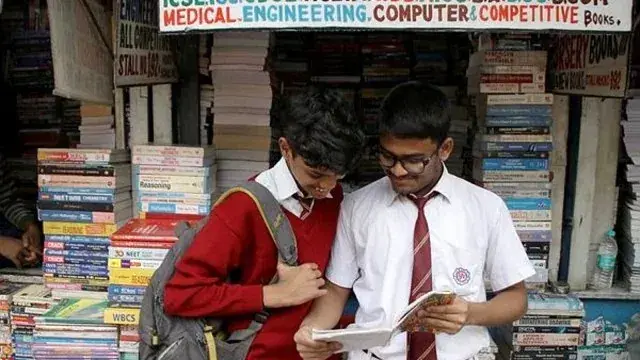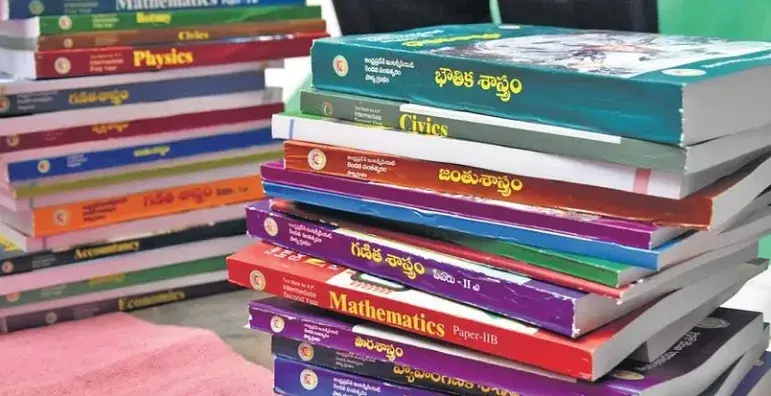The Karnataka government has taken steps to form a fresh textbook revision committee aimed at revising the state’s educational curriculum. This initiative will focus on first and second language Kannada textbooks for classes 1 to 10, third language Kannada textbooks for classes 9 and 10, as well as social science textbooks for classes 6 to 10. In an official order issued on September 25, the government appointed Dr. Manjunath Hegde, a retired history professor, as the chief coordinator of this committee. The panel, comprising 37 members including education experts and academicians, has been granted a maximum of three months to complete the revision of textbooks. The goal is to implement the updated curriculum in the academic year 2024-25. It’s worth noting that the previous textbook revision, conducted when the BJP was in power, faced criticism due to concerns of ideological bias. At that time, Rohit Chakrathirtha, a right-wing ideologue, was appointed as the chairman of the revision committee. The opposition, led by the Congress, accused the government of injecting a right-wing perspective into the textbooks by including content related to RSS founder KB Hedgewar, Vinayak Damodar Savarkar, and works by right-wing activists like Chakravarthy Sulibele. The primary responsibility of the 37-member committee is to provide educational guidance and recommendations to the government regarding the revision of textbooks in the specified subjects and classes. Additionally, the order suggests that the chief coordinator and other committee members receive a monthly honorarium and other facilities during the three-month period. Dr. Manjunath Hegde, hailing from Uttara Kannada district, will lead the committee, overseeing five subject-specific textbook revision committees: Dr. Anjanappa, a Kannada professor at Tunga Mahavidyalaya in Shivamogga, will head the first language Kannada textbook revision committee, consisting of 10 members. Dr. HS Sathyanarayan, a Kannada lecturer at Government Girls PU College in Chikkamagaluru, will preside over the second language Kannada textbook revision committee, also comprising 10 members. Dr. Manjanna, a lecturer at Government Women’s First Degree College in Davangere, will lead the third language Kannada textbook revision committee, which includes four members. Dr. Kiran M, an assistant professor at the Central University of Gulbarga, will serve as the president of the social science textbook revision committee for classes 6 and 7, comprising seven members. Dr. Ashwathnarayan, a retired history professor of Bangalore University, will head the social science textbook revision committee for classes 8, 9, and 10, with 10 members. One noteworthy change this year is the inclusion of minority representation in the committee, addressing a criticism faced by the BJP last year. The Congress government has appointed three Muslims to the committee, including Waseem Anwar, an assistant teacher at Karnataka Public School in Tumkur, who is a member of the social science textbook revision committee for classes 6 and 7. Tabbasum Fathima, an assistant teacher at Government Urdu High School in Ramanagara, and Shaheena Alampura, an assistant teacher at Government High School in Bengaluru Rural, are members of the social science textbook revision committee for classes 8, 9, and 10. Earlier this year, the Congress government had initiated 18 changes in the Kannada and Social Science subjects for classes 6 to 10. These changes involved the removal of a class 10 lesson on Hedgewar, “Who Should Be an Ideal Man,” and its replacement with “Story of Sukumara Swami” authored by Shivakotacharya in Kannada language. Additionally, the Congress reintroduced “Letters from a Father to His Daughter” by Jawaharlal Nehru, translated into Kannada by Siddanahalli Krishna Sharma, in class 8, reversing the BJP’s previous decision to exclude it and introduce “BhooKailasa” by Parampalli Narasimha Aithal, which has now been removed.


